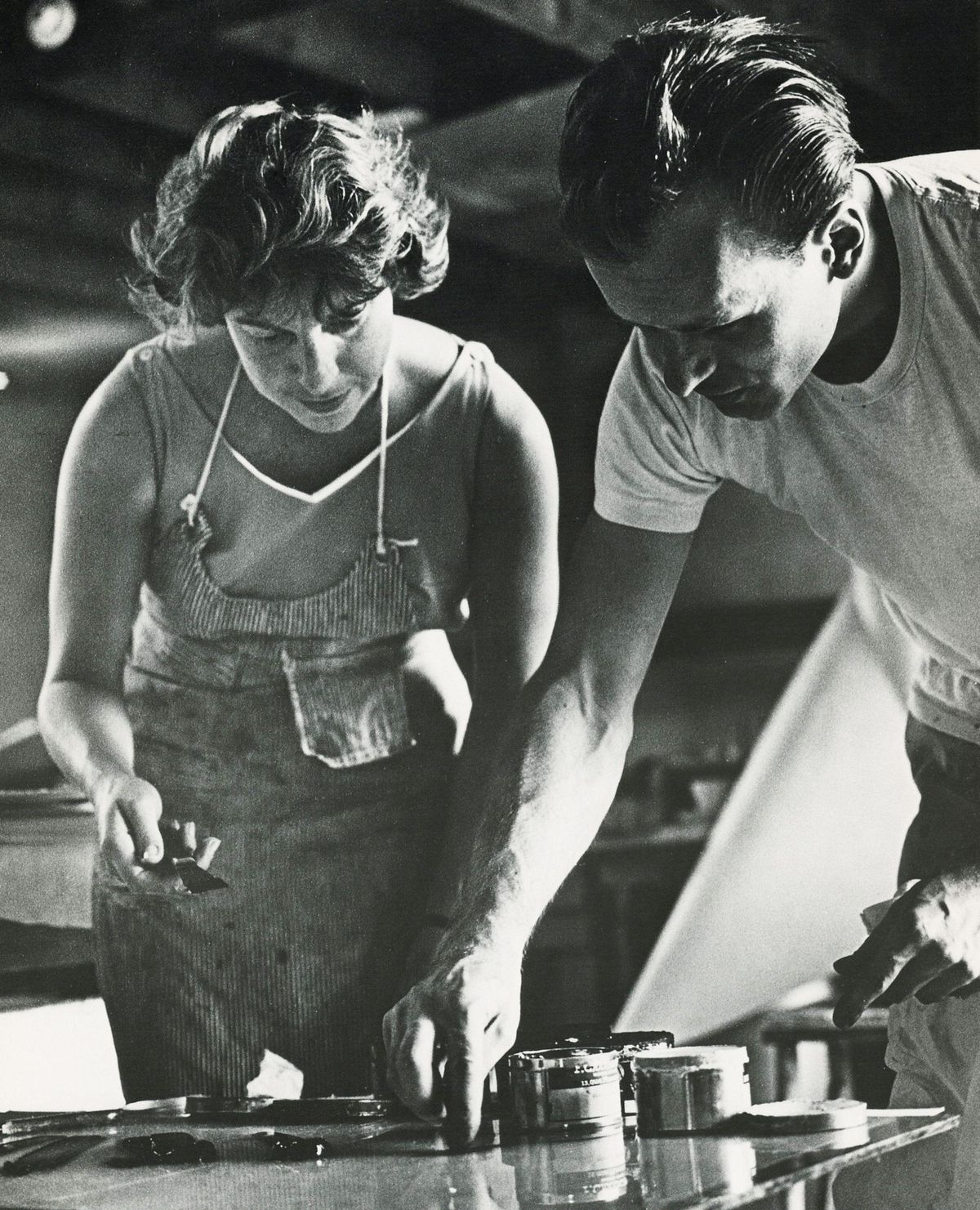An official statement from the board of directors of the Helen Frankenthaler Foundation in response to a lawsuit filed by the late artist’s nephew, Frederick Iseman, has called allegations made over “mismanagement and self-enrichment” by the foundation’s leadership “baseless and without merit”.
The lawsuit was filed at New York State’s Supreme Court on 8 November, and accuses the foundation, which manages the estate of post-war American artist Helen Frankenthaler (who died in 2011, of “engaging in a kind of ‘grabstract expressionism’ that is effectively destroying Frankenthaler’s legacy”.
Iseman seeks to regain his spot on the foundation’s board, after being asked to leave earlier this year by current board members—the artist’s stepdaughter Lise Motherwell, Michael Hecht and Clifford Ross (Iseman’s cousin). He alleges the board are planning to “disband and sell off” the foundation’s collection—including works by Frankenthaler, pieces by other artists and investments—noted as being worth “nearly $1bn” in total, which represents and spans the artist’s six-decade long career.
“As president of the Helen Frankenthaler Foundation’s board of directors, Mr. Iseman was actively involved in and approved all major decisions made by the board. Over the years, and as recently as May 2023, he approved the re-election of each of three board members, whom he is now suing,” the board director’s statement says. “It is unfortunate that as a result of Mr. Iseman’s failure to win re-election to the board, he has resorted to spurious claims in a frivolous litigation.”
Lack of clarity or conflicting interests?
The fallout recalls previous tricky situations between family members and foundations, or entities, tasked with managing an artist’s legacy. The lengthy and bitter 1970s case between the daughter of Mark Rothko (Kate Rothko) and the executors of his estate (in conjunction with Marlborough Gallery) ultimately saw a body of art works returned to the family, a substantial fine and the restructuring of the (now-closed) foundation.
A 2014 case between descendants of Peggy Guggenheim and the New York foundation constructed to manage her estate, also saw battle break out over claims the art collection had been mishandled.
In cases concerning foundations and family members, arguments can hinge around the detail (or lack thereof) within the governance documents or any prior delineation of the artist’s intentions, underpinning the legacy management. During the Guggenheim case, there was disagreement as to the level of detail left about the future management of the collection and the latest Frankenthaler lawsuit similarly concerns itself with whether the foundation’s actions contravene the late artist’s explicit wishes.
“You would prefer the Foundation continue to be self-perpetuating: the Directors, however, have discretion to liquidate (hopefully not) and/or make other arrangements for the satisfactory disposition of your works and the works of others and terminate the Foundation (hopefully not),” read the court documents, allegedly citing the artist’s personal lawyer’s outling of her intent.
“Even in instances where an artist’s wishes are expressed, balancing the belief of family members and entities charged with managing a legacy, can be challenging in a fast-moving art market and complex institutional landscape,” notes Caroline Sayan, chief executive of Cadell + Co advisory, which has worked with numerous foundations.
While most such disputes end up being played out in civil court, matters can escalate and involve criminal accusations. Earlier this year, more than 100 works by the late Op-artist Victor Vasarely were seized from the Michèle Vasarely Foundation by police in Puerto Rico as French authorities and the FBI worked to unpick a family feud over the late artist’s legacy.
Legal representatives of Iseman declined to comment on the case.


